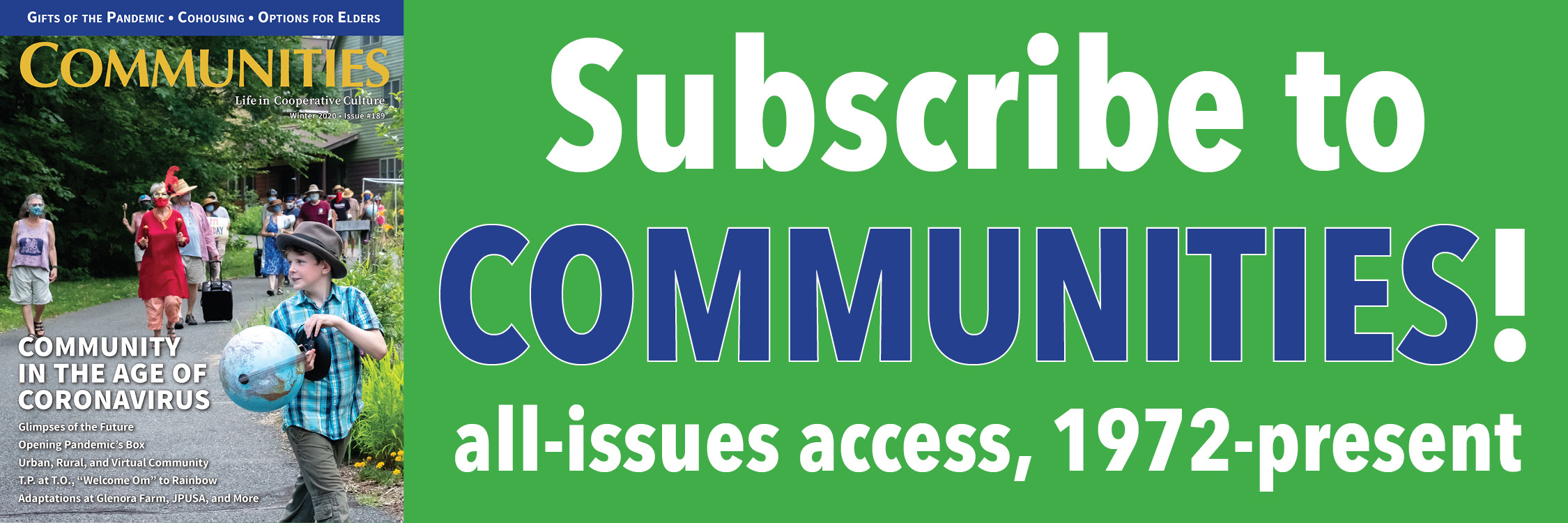As interest in community living grows, it’s important that we make it easy and accessible for people to get involved with their local co-ops and coliving spaces. For many people, community dinners, art and music nights, and overnight stays are the ideal way to explore whether coliving is right for them.
Sometimes, it can be hard to tap into those events and activities – especially if nearby communities don’t have a website, aren’t in the IC.org directory, or keep a low profile. A would-be resident may have no way of getting in touch with them until an open room ad pops up on Craigslist.
One way that ICs can connect with the wider community is through a localized network. Here in Portland, a group of friends have started the Grapevine Network, which currently has profiles of four local communities, including my own, Foster Village. According to its website,
“Portland, Oregon is the hometown to many amazing intentional community houses. Each has its own set up and culture, but all share the desire to join people in living together intentionally…. Our goal is to facilitate general networking, sharing, and collaboration among communities through face-to-face and online interactions.”
As it grows, the network will include an event calendar, open room listings, and more.
In the Bay Area, a similar project called the Embassy Network aims to link “people and spaces experimenting with culture and commoning.” Based out of a shared home in in San Francisco, the group recently renovated the Red Victorian Hotel into a “collaborative, mixed use space.” Both locations offer events that are open to the public, including salon nights and a lecture series.
The website lists half-a-dozen communities that are part of the network, including the Haiti Communitere and the Philly Service Co-op. Each of these spaces offers short-term room openings for guests:
“Our open source platform offers guest hosting and event management….Similar to AirBnB, listing your location lets you add guest rooms and manage availability, payments and scheduling, but it is also designed to expose information about guests and residents to each other in a way that facilitates conversation and collaboration.”
Guests can book a stay in shared or private rooms and spend some time getting to know the other residents. For communities, this can be a great way to welcome guests without relying on a corporate hosting platform.
The easier we make it for people to visit other ICs while traveling, the more inter-connected our movement becomes. We can share stories and experiences from our own neighborhoods, and learn how ICs grow and develop around the world.
Think your community would be a good fit for the network? Check out the info on becoming a host and watch the video on Haiti Communitere below. You can follow the Embassy Network on Twitter at @EmbassyNetwork.





















